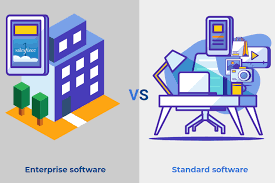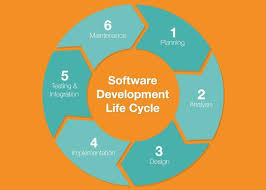The Role of an Adobe Software Engineer: Driving Innovation in Technology
The Role of an Adobe Software Engineer
Adobe software engineers play a crucial role in the development and maintenance of various software products offered by Adobe Inc. As a leading technology company known for its creative software solutions, Adobe relies on talented engineers to design, implement, and enhance its diverse range of applications.
Responsibilities of an Adobe Software Engineer
Adobe software engineers are responsible for:
- Collaborating with cross-functional teams to understand project requirements
- Designing and developing software solutions that meet quality standards
- Testing and debugging code to ensure optimal performance
- Maintaining and updating existing software applications
- Keeping abreast of industry trends and technologies to drive innovation
Skills and Qualifications
To excel as an Adobe software engineer, individuals typically possess the following skills and qualifications:
- Proficiency in programming languages such as Java, C++, or Python
- Experience with software development methodologies and tools
- Strong problem-solving abilities and attention to detail
- Effective communication skills for team collaboration
- A passion for technology and a desire to innovate
Career Outlook
The demand for skilled software engineers, including those specializing in Adobe products, continues to grow as companies rely on technology for their operations. Career opportunities for Adobe software engineers can be found in various industries, from design and media to e-commerce and beyond.
In conclusion, being an Adobe software engineer offers a rewarding career path for individuals who are passionate about creating innovative solutions that empower users worldwide.
Top 7 FAQs About Working as a Software Engineer at Adobe
- What is the salary of software engineer in Adobe test?
- What is the salary of a software quality engineer in Adobe?
- Is Adobe Good company to Work as a software engineer?
- What is the in hand salary of Adobe Software Engineer?
- Is it hard getting a job at Adobe?
- How much do software engineers make at Adobe?
- What does an Adobe software engineer do?
What is the salary of software engineer in Adobe test?
One of the frequently asked questions regarding Adobe software engineers is about the salary range for individuals working in Adobe’s testing department. The salary of a software engineer at Adobe can vary based on factors such as experience, location, and specific job responsibilities within the testing domain. Generally, Adobe offers competitive salaries to attract top talent in the industry, and software engineers in test roles can expect to receive compensation that aligns with their skills and contributions to the company’s success.
What is the salary of a software quality engineer in Adobe?
The salary of a software quality engineer at Adobe can vary based on factors such as experience, location, and specific job responsibilities. Generally, software quality engineers at Adobe are competitively compensated, with salaries typically ranging from $80,000 to $120,000 per year. Additionally, Adobe offers various benefits and opportunities for career growth and development to attract and retain top talent in the field of software engineering.
Is Adobe Good company to Work as a software engineer?
Many software engineers considering job opportunities often wonder, “Is Adobe a good company to work for as a software engineer?” Adobe is widely regarded as a reputable technology company with a strong emphasis on creativity and innovation. Working as a software engineer at Adobe offers the opportunity to contribute to cutting-edge projects, collaborate with talented teams, and be part of a company known for its industry-leading software solutions. With a focus on employee development, work-life balance, and a culture that values diversity and inclusion, Adobe can be an appealing choice for software engineers looking to grow their careers in a dynamic and forward-thinking environment.
What is the in hand salary of Adobe Software Engineer?
One frequently asked question regarding Adobe Software Engineer positions is about the in-hand salary. The in-hand salary of an Adobe Software Engineer can vary based on factors such as experience, location, and specific job role within the company. Generally, Adobe offers competitive compensation packages to attract and retain top talent in the industry. Candidates interested in knowing the specific in-hand salary for an Adobe Software Engineer position are encouraged to research current market trends, leverage resources like Glassdoor or Payscale for salary insights, and engage directly with Adobe’s recruitment team during the interview process to discuss compensation details.
Is it hard getting a job at Adobe?
Securing a job at Adobe can be a competitive process due to the company’s reputation for innovation and high-quality software products. The hiring standards at Adobe are known to be rigorous, as they seek talented individuals who can contribute effectively to their diverse range of projects. Candidates applying for software engineering positions at Adobe should demonstrate strong technical skills, a solid understanding of software development principles, and the ability to work collaboratively in a dynamic environment. While getting a job at Adobe may pose challenges, it is certainly achievable for candidates who showcase their expertise and passion for technology during the application process.
How much do software engineers make at Adobe?
When it comes to compensation for software engineers at Adobe, salaries typically reflect the industry standards and the level of experience and expertise of the individual. While specific figures can vary based on factors such as location, job role, and seniority, software engineers at Adobe can expect competitive pay packages that align with their skills and contributions to the company. Adobe values its employees and strives to offer fair and attractive compensation packages to ensure that software engineers feel valued and motivated in their roles.
What does an Adobe software engineer do?
An Adobe software engineer plays a pivotal role in the development and enhancement of Adobe’s diverse range of software products. These professionals collaborate with cross-functional teams to understand project requirements, design and implement software solutions that meet quality standards, test and debug code for optimal performance, maintain and update existing applications, and stay updated on industry trends to drive innovation. In essence, an Adobe software engineer is responsible for creating cutting-edge software solutions that empower users across various industries with innovative tools and technologies.











